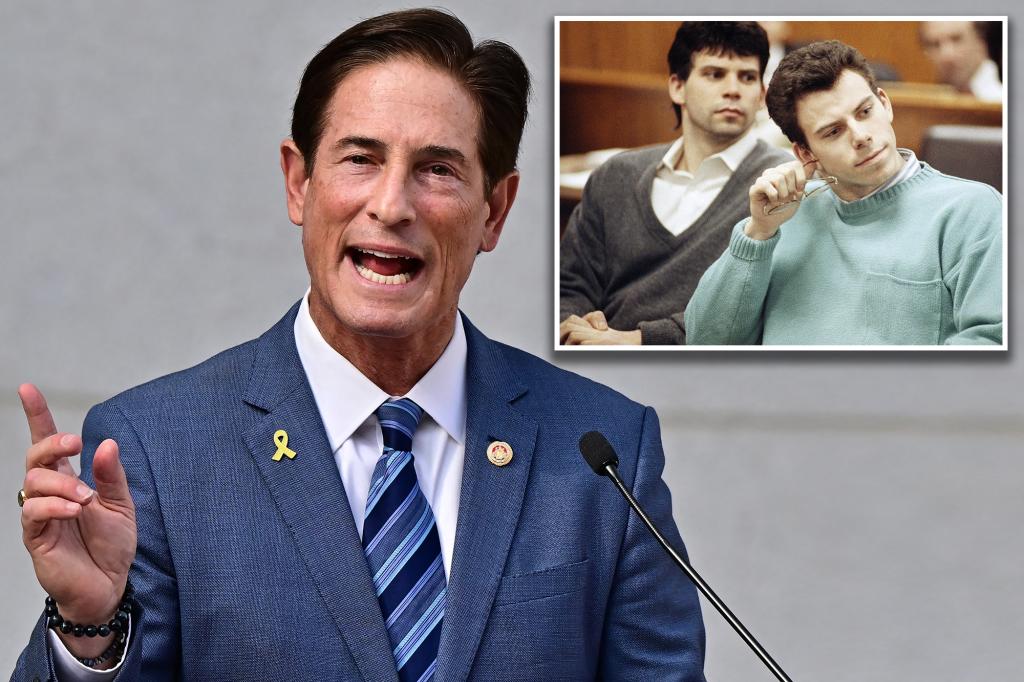The fate of Erik and Lyle Menendez, convicted in 1996 for the 1989 murders of their parents, Jose and Kitty Menendez, hangs in the balance following a shift in leadership within the Los Angeles County District Attorney’s office. Under former District Attorney George Gascon, the brothers appeared poised for release, with their cases recommended for resentencing and Gascon himself petitioning Governor Gavin Newsom for clemency. This potential release stemmed from arguments presented by the brothers’ legal team, emphasizing the alleged sexual abuse they suffered at the hands of their father, a factor they claim was not adequately considered during their original trial. However, Gascon’s successor, Nathan Hochman, has adopted a more cautious approach, casting doubt on the brothers’ prospects for freedom.
Hochman’s initial actions have prompted concern among those advocating for the Menendez brothers’ continued incarceration. He has met with Milton Anderson, Kitty Menendez’s brother and a staunch proponent of the brothers remaining imprisoned, while reportedly declining to meet with family members who support their release. This perceived bias in Hochman’s early consultations has been interpreted as a negative sign by Bryan Freedman, an attorney representing twenty family members who believe the brothers should remain incarcerated. Freedman contends that Hochman’s preference for meeting with Anderson, who has had limited interaction with the brothers over the past three decades, over other family members with more direct and recent involvement, suggests a predetermined stance on the matter.
Further fueling speculation about Hochman’s intentions is his removal of two key figures from the District Attorney’s office who were instrumental in advocating for the Menendez brothers’ resentencing under Gascon’s tenure. Nancy Theberge, former head of Gascon’s resentencing unit, has been reassigned to the office of the alternate public defender, while Brock Lunsford has been moved from the post-conviction unit, albeit remaining within the DA’s office. These personnel changes are viewed as potentially significant, given Theberge and Lunsford’s authorship of the 57-page document arguing for the brothers’ immediate parole eligibility. Freedman interprets their removal as a clear indication of Hochman’s likely opposition to their release, suggesting either a lack of experience on Hochman’s part or a politically motivated decision.
Adding to the complexity of the situation is Hochman’s public statement emphasizing the need to treat Erik and Lyle Menendez’s cases separately. While they are often referred to collectively as “the Menendez brothers,” Hochman has stressed the importance of considering each brother’s circumstances individually. This approach suggests a more nuanced review than Gascon’s blanket recommendation for resentencing, potentially leading to different outcomes for each brother. Furthermore, Hochman’s stance effectively puts the onus back on the judicial system, signaling a departure from Gascon’s more proactive intervention on the brothers’ behalf.
The ongoing legal proceedings have been further complicated by the recent release of a Netflix docuseries, “The Menendez Brothers,” which has revived public interest in the case and brought renewed attention to the brothers’ claims of childhood sexual abuse. While the series doesn’t explicitly advocate for their release, it presents their allegations in detail, potentially influencing public opinion and adding another layer of complexity for Hochman to navigate. The timing of the series’ release, coinciding with the change in leadership within the DA’s office and the pending resentencing hearing, adds a significant element of public pressure to an already sensitive and high-profile case.
Ultimately, the fate of the Menendez brothers remains uncertain. While Judge Jesic has delayed the resentencing hearing until the end of January to allow for input from Hochman’s office, the new District Attorney’s actions suggest a less favorable outcome for the brothers than seemed likely under Gascon. Hochman’s consultation with Anderson, his removal of key personnel involved in the resentencing effort, and his public statements all point towards a more cautious and potentially less sympathetic approach to their case. The brothers’ claims of abuse will undoubtedly be a central factor in the upcoming proceedings, but the extent to which they will influence the final decision remains to be seen. The legal and public battle surrounding the Menendez brothers continues to unfold, with the possibility of their release hanging precariously in the balance.

